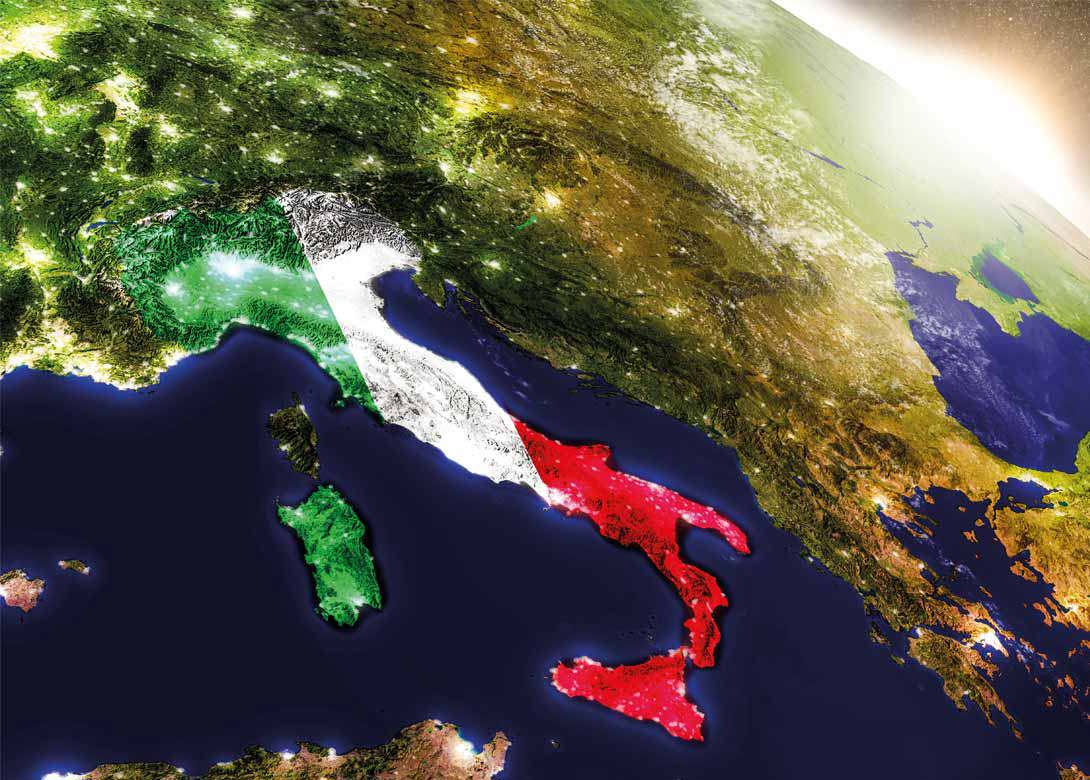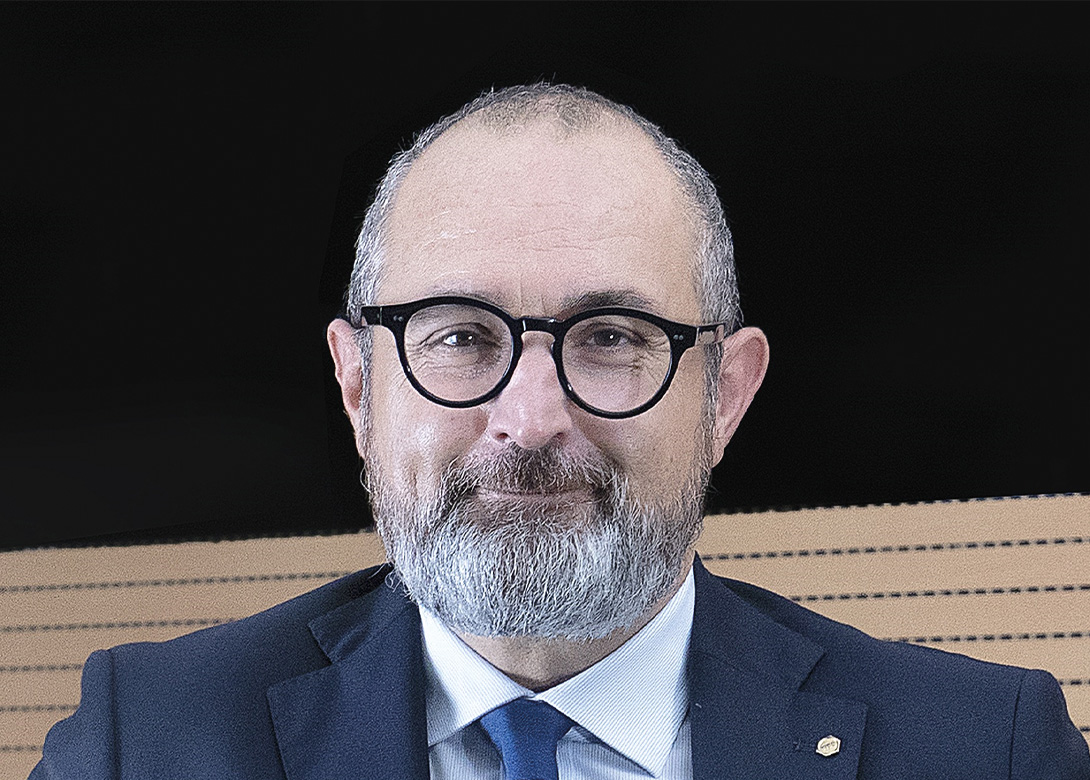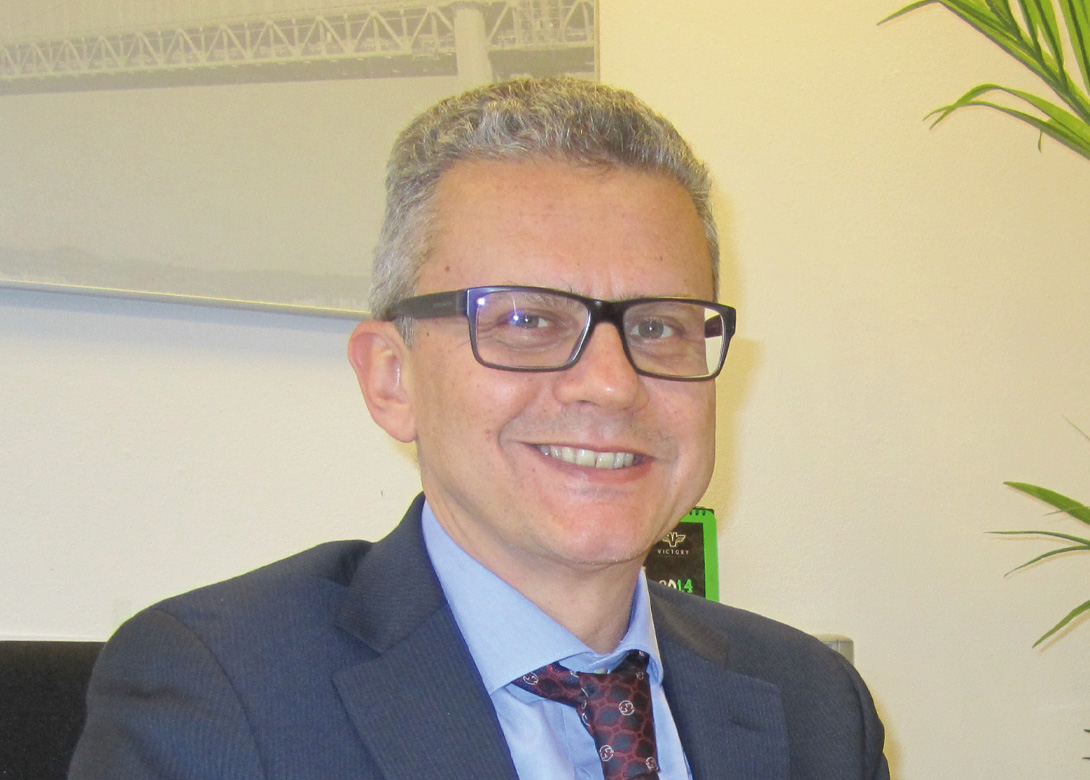

By Marco A Guerritore, editor in chief, Italian Fasteners Magazine
Confusion reigns in the market today, first because of Covid-19 and then because of the war in Ukraine. Making predictions is undoubtedly not easy, with the constant rise in energy and raw material prices, the difficulties, and risks, for those running a business are very high.
In any case, entrepreneurs cannot stop, they must move forward even if they have many doubts and questions. Undoubtedly, it is not possible to dispel all the uncertainties and answer all the questions comprehensively. 
With this in mind, some interesting and relevant questions were submitted to Vittoriano Calomeni – general manager of Bontempi Vibo SpA and CEO of Mi.Mi.Af. SpA, and president of the UPIVEB General Industry & Distribution Market Group (top right), as well as Giandomenico Sbaragli – sales and marketing director of Agrati Group and president of the UPIVEB ‘Automotive’ Market Group (bottom right).
What consequences has Covid-19 left on fastener companies?
Calomeni: “Unfortunately, the Covid-19 emergency is not over yet. We have simply gotten used to living with it. I don’t think our sector has any particular issues in this respect. Still, in general, I believe that this pandemic has left us with the awareness that no matter how necessary it is to make medium to long-term plans, we must always be ready and prepared to adapt them to an ever-changing context.”
Sbaragli: “Covid-19 represented a real revolution, both in terms of the market and in terms of the cultural and management aspects within companies. The long wave of the market crisis caused by Covid-19 has not yet passed. The volumes of car sales achieved in the pre-Covid era have not yet been fully recovered – due to the market being suffocated by other problems only partially linked to Covid-19, such as the shortage of microchips, inflation and the uncertainty generated by electrification.
The other element that characterised the pandemic period was the change of some organisational parameters that seemed to be ingrained in our companies. Smart working, which had become a necessity during the periods of shutdown or periods of restrictions, suddenly became a new ‘modus operandi’.
This mechanism has been systematically incorporated into business processes and is extremely important for the workforce and in particular the younger generations, who are much more focused on achieving a balance between work and personal life and are much less willing to travel long distances to physically reach their place of work.”
As the pandemic restrictions started to ease across Europe, it seemed that a period of economic recovery was about to begin, but then the war in Ukraine destabilised all expectations with a slowdown in market dynamics. What are your thoughts?
Calomeni: “Yes, that’s right. 2021 was a record year for the fastener industry due to the post-Covid recovery and the expectations created in the market as a result of the anti-dumping investigation launched by the European Commission following the complaint lodged by EIFI. The outlook for 2022 was even further growth, with demand remaining at high-levels. However, there had been warnings of rising energy prices before the war, which had raised some threats. The war subsequently amplified the magnitude of these events.”
Sbaragli: “The economic crisis, resulting from the two years of Covid-19, inevitably slowed down a market that had already shown signs of subsiding, with a downward trend that began in 2018 and continued in 2019, due to unfair competition from China. 2022 looked like it could be the year of the restart, especially in the second half of the year. To date, forecasts still show the next six months as robust with volumes finally matching those recorded in the pre-Covid period. However, there remains the unknown impact that the war in Ukraine may have, especially on energy costs and gas.
This situation generates an increasingly worrying inflationary trend and could create severe market slowdowns and serious financial difficulties in the supply chain. Another major element of risk is the availability of gas. An interruption in supplies from Russia could create problems for the continuity of production throughout the automotive supply chain, representing a further element of severe disruption to the market for the third consecutive year.”
As you mentioned, one of the main problems facing the fastener industry today is the rising cost of energy. How do you think it should be tackled?
Calomeni: “Firstly, I think intervention by the Italian government is indispensable, followed closely by a European regulation of the energy market. It is not possible that in the face of 10 year framework agreements we are witnessing continuous record increases that have led the cost of energy to be 500% higher than 12 months ago. In my opinion, the government should ensure that there are no speculative operations even in the free market.”
Sbaragli: “The uncontrolled increase in energy is certainly the biggest cause for concern in recent weeks. The trend that began in the second half of 2021 seemed to be manageable through timely negotiations with customers and with a kind of pain-sharing, which was necessary to overcome the period of increase that everyone thought would not last and whose intensity could be managed. The beginning of the war and the tensions with Russia regarding the supply of gas have instead created a difficult situation, with problems associated with cost increases and availability that become crucial in the management strategies of each company.
Managing these costs with suppliers and customers throughout the supply chain is the only short-term tool that can limit the default risks of one or more elements of the supply chain. A balance must be found between the record margins generated by car manufacturers and the suffering of the entire upstream supply chain.
In the medium to long-term, it will be necessary to review the strategies for energy consumption, within the various industrial processes and the technologies for both energy generation and production – especially if the new costs turn out to be, at least partially, a new standard.”
There is a lot of talk about Industry 4.0 and sometimes even Industry 5.0. In other words, industries that are increasingly robotised and therefore require more and more energy to operate. Do you think this is a contradiction? Shouldn’t we instead review the concept of the use of labour?
Calomeni: “No, I don’t think there is such a correlation. Automation is essential to meet the ever more pressing performance requirements arriving from the market. Furthermore, Italy does not have a large availability of labour; in fact, there is a chronic shortage of various specific profiles. The search for qualified personnel has been a major challenge in recent years and will remain so in the near future.”
Sbaragli: “In reality, the main drivers of energy consumption are part of the production processes, which have little to do with the widespread use of labour. I am referring, particularly in our field, to wire preparation, reclamation processes, and if we widen the scope to include the supply chain, to steel production.
Extending the use of Industry 4.0 to these processes remains the only solution for rationalising consumption and focusing on the efficiency of the processes themselves, precisely to reduce gas and electricity consumption where the expense is greatest.”
If energy prices were to rise further, what could be the consequences for the fastener sector?
Calomeni: “Without structural interventions at a national and European level, faced with competition that is not in the same condition, I see the generalised shutdown of the entire European production sector as the only foreseeable consequence.”
Sbaragli: “A further increase would become unsustainable without direct support from car manufacturers. The weight of raw materials (strongly influenced by electricity and gas costs) of the basic processes of wire treatment, reclamation and surface treatment, make our production particularly energy intensive and dependent on gas and electricity costs. Therefore our activities would be unmanageable without adjusting prices to the new cost levels. There are no alternative solutions in the short-term.”
In some countries, especially in Europe, people are starting to think about selecting companies to be preserved in the event of energy rationing. In this case, what do you think is the fate of the fastener industry?
Calomeni: “The fastener is a low value commodity, but it represents a very dangerous ‘line stopper’ for several sectors. Therefore, I believe that our industry will have to be preserved so that other vital sectors can continue to produce.”
Sbaragli: “I believe that the fastener industry must be preserved. Our industry is an essential element in the assembly of a huge number of products. Stopping our production would be tantamount to destroying huge chunks of the European economy.
Rationing would also greatly risk the continuity of production activities in general and would most likely indirectly disrupt one or more points in the chain. This in turn would greatly impact the entire Italian and European manufacturing industry.”
Inflation is gaining strength again. How do you think it should be tackled?
Calomeni: “I believe that stagflation is more critical than inflation and unfortunately an unambiguous and shared solution does not exist for this. The only possibility I see is that European institutions and governments must quickly regain credibility, convincing households and businesses of the transient nature of this dire situation.”
Sbaragli: “The answer is similar to that already indicated for energy. In fact, one of the key drivers of inflation is precisely that of energy cost. To date, support from major car manufacturers is the only solution for overcoming this difficult time.”
What about Green certificates, which have quadrupled in less than two years?
Calomeni: “A positive effect that has come from this crisis is the strong push for households and companies to find alternative, autonomous and environmentally friendly energy sources.”
Sbaragli: “In general, the focus on sustainability, CO2 reduction and the circular economy has increased dramatically in recent years. In the automotive sector, the certification based on green issues, and therefore the ability to demonstrate that these issues are a central part of company strategies, is becoming a must in order to be able to access new projects and work with major car manufacturers.
I believe that the trend is correct, bearing in mind of course that the green transition being demanded has a cost – requiring time for the redesigning of production processes and reconversion
of facilities.
Also in this case, total alignment between suppliers, customers (in particular OEMs) and institutions is crucial. An imbalance between strategies, demands for change and resources could be dangerous for many players in the supply chain.”
In the current political/economic situation, can UPIVEB play a role in supporting its members?
Calomeni: “Yes, absolutely. UPIVEB is essential for the fastener sector especially for discussions on common issues as the association makes it possible to learn from successful strategies implemented by other companies. Above all, the association is essential for bringing the issues that Italian fastener manufacturers care about to Brussels and Rome.”
Sbaragli: “I believe that coordination between companies in the supply chain, large manufacturers, and institutions, plays a vital role in these difficult times.
The management of inflation and the significant impact this will have on the results of member companies; the balance between regulations and laws with respect to the resources needed for their implementation; as well as the management of tensions between different yet interconnected players; are all components of the day-to-day management of a company. However, they will have to be addressed on a broader scale.
The activity of the association and its integration into groups and associations with greater specific weight will allow us to address the different aspects with greater strength, adequate to the extraordinary nature of the events we are currently experiencing.
It is precisely at such times when the saying ‘union is strength’ becomes indispensable!”
www.upiveb.org

Will joined Fastener + Fixing Magazine in 2007 and over the last 15 years has experienced every facet of the fastener sector - interviewing key figures within the industry and visiting leading companies and exhibitions around the globe.
Will manages the content strategy across all platforms and is the guardian for the high editorial standards that the Magazine is renowned.
Don't have an account? Sign Up
Signing up to Fastener + Fixing Magazine enables you to manage your account details.